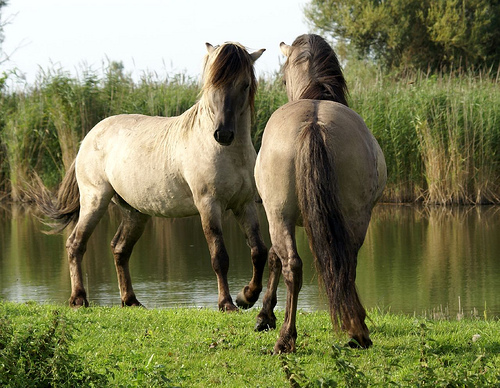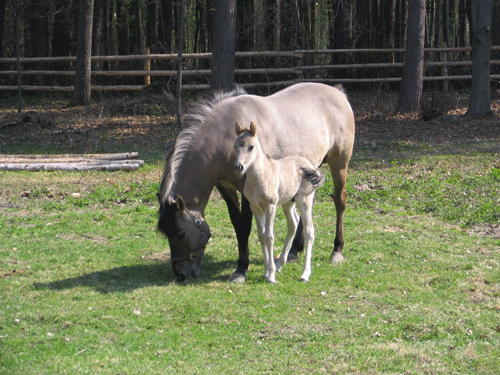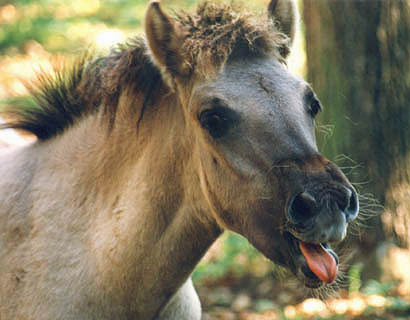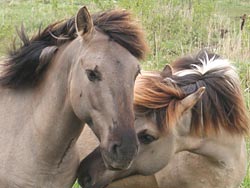



|
Konik Qualities
The Konik horse is a hardy breed that has been thought of as one that, according to German explorers, could possibly have been bred with the famous Przewalski’s horse. Most of the horses located in Europe and Asia commonly have the feature of the big heads similar to the Konik breed. They are also known as the Polish primitive horse in some parts of the world. Currently, there are many private breeders with most of them being females in their families.
Konik Temperament
The Konik horse is very calm and tender. They bode strong personalities and are well known for being simple to deal with. Many handlers enjoy these animals as they are good for many uses and still maintain themselves in all temperature scales rather well. Very biddable and docile animals, it is simple to see why so many still own them today.
Konik Appearance
The Konik horse has a larger head than some, but still within adequate proportion to its body frame. They have strong backs, a short but powerful neck, hardy legs, and upright shoulders. Their broad bodies with loads of muscle tissue aid them in pulling heavy loads and transporting people and cargo. They measure around thirteen hands in adult size.
Konik Upkeep
The Konik horse has a reputation for being an easy breed to care for. They can survive in various temperatures with ease and travel for a very long time before suffering from any fatiguing issues. They have been able to find their own means of food as well as caring for themselves in some of the toughest conditions. The Konik can handle traveling in rough terrain and also does very well on farmlands.
Konik History
The Polish Konik has been traced back to likely be of relation to the Tarpan breed, though possibly the Hucul as well. Their name, for example, is translated to the meaning “little horse”, but is certainly no comparison to any small horses or ponies. Very popular in their native Poland, the Konik horse holds a high amount of value to its residents as they are utilized as animals of agricultural purpose in these areas. They are well known for being considerably strong for their size and shape. Researchers believe that this breed has some Arabian lines and bred it with them to make the breed that you see today. This breed can be found in Poland, Slovankia, Ukraine, Belarus, Lithuania, Popielno, and other areas surrounding the Baltic Sea. Currently, they reside on various reserves, such as the Whitehall Meadow. During the 1930’s, a professor named Tadeusz Vetulani started to attempt to get the breed back on its original path. Some are also situated on the Ham Fen National Reserve and Sandwich Bay as well. The Suffolk Wildlife Trust began a restoration project specifically for the Konik breed.
|